How Actuaries are Changing Health Care with Predictive Analytics
SOA members use data in creative ways to help health care providers achieve the Triple Aim.
Our actuaries are prepared to use advanced analytics to identify areas like drug interactions and success rates, understand signs of imminent public health crises, and help businesses develop tailored solutions to these challenges. SOA-credentialed actuaries interpret, report, visualize and clearly communicate data insights for complex issues like how to navigate the industry’s transition from fee-for-service to value-based care.
Learn more about the unique journeys of actuaries working in health care.
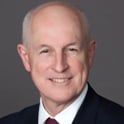 Ian Duncan, FSA, FCA, FCIA, FIA, MAAA - Professor, University of California Santa Barbara
Ian Duncan, FSA, FCA, FCIA, FIA, MAAA - Professor, University of California Santa Barbara
Meet Ian Duncan. His actuarial training propelled him on a 30-year journey through consulting, entrepreneurship, pharmaceuticals, and academia. He has maintained a special focus on using predictive analytics to help health care companies provide higher quality care without sacrificing their bottom lines.
Among others, Ian's work has helped Accountable Care Organizations identify the most financially taxing end-of-life treatment regimens and design interventions to reverse the trend. Through early identification of cases likely to result in long-term hospitalization or over medicalization, Ian's clients apply immediate prevention protocols, a model that has since been adopted by many palliative care providers.
Ian's advice to actuaries seeking a career in data science: "One model doesn't fit all. Start with an understanding of the specific problem and then find a solution. Only then can you develop a model that bridges that gap."
Read The Actuary article about Ian Duncan's work with predictive analytics.
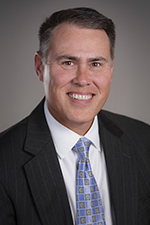 Patrick Getzen, FSA, MAAA, SVP - Chief Data and Analytics Officer at Blue Cross Blue Shield North Carolina
Patrick Getzen, FSA, MAAA, SVP - Chief Data and Analytics Officer at Blue Cross Blue Shield North Carolina
Patrick and his team pair their elite technical skills and problem-solving abilities to move quickly in Blue Cross Blue Shield North Carolina’s rapidly changing environment. Applying a diverse set of skills, they translate data into information that helps the company make better business decisions. As a result, Patrick sees an opportunity for actuaries to help create and manage new payment models.
Patrick’s advice to other actuaries and those interested in the field: “Personal happiness and satisfaction doesn’t always happen by accident. You have to think about it. That’s how I have thought about success – starting with the goal in mind, and working backward to see how I’m going to achieve it.”
To learn more about Patrick’s work in predictive analytics, click here.
To learn more about Patrick’s career path, click here.
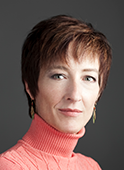 Carol McCall, FSA, MAAA - Principal, Health and Analytic Innovations
Carol McCall, FSA, MAAA - Principal, Health and Analytic Innovations
Meet Carol McCall. Carol combines her actuarial training, business acumen and hands-on clinical experience to help solve important problems in health care. During her 20 years as an actuary, innovator and predictive analyst, she has combined novel sources of clinical, financial and behavioral data to create analytic solutions that help companies improve people's health, promote consumer choice and enhance company profitability.
At Humana, Carol's team partnered with the actuarial area to create SmartStart, game-changing predictive analytics software that predicted a consumer's choice of plan design across a wide range of CDHP offerings in real time. The software was used by actuaries to price and underwrite the coverage, and by salespeople in the field to help employers design their offerings and find the right plans at the right price. By speeding up the entire process, Humana was able to sell more CDHP products at a stable (and higher) margin, while saving employers money and giving consumers a choice between plans.
Carol's advice to employers searching for predictive analysts: " Diversify your teams and collaborate. Actuaries are the link between a good idea and its implementation."
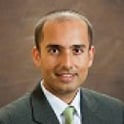 Syed Mehmud, ASA, FCA, MAAA - Partner and Senior Consulting Actuary, Wakely Consulting Group
Syed Mehmud, ASA, FCA, MAAA - Partner and Senior Consulting Actuary, Wakely Consulting Group
Meet Syed Mehmud. In 2009, Syed joined Wakely Consulting, where he manages a team supporting health care-related projects for Medicare, Medicaid and commercial settings including those involving risk adjustment tools and methodologies. In addition to his background in mathematics, physics and actuarial science, Syed's demonstrated strength is his ability to communicate highly technical concepts to business executives.
Recently, Syed directed all technical aspects of a risk adjustment project on with a scale not seen in the commercial space. Faced with the Affordable Care Act, new health plans could not adequately predict the financial impact of risk adjustment on their exchange offerings. The Wakely team created a model to simulate patients' Health and Human Services (HHS) risk scores and convened more than 60 major insurance carriers from more than 30 states to run the model quarterly, helping payers manage their risk and maintain profitability in an unfamiliar environment.
Syed's advice to actuaries considering a nontraditional path: "This is a dynamic field. It doesn't matter how many years of experience you have, there will always be new things to learn the next year."
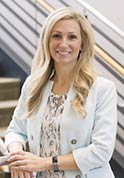 Sarah Osborne, FSA, MAAA, FCA - SVP, Chief Actuary and Analytics Officers at GEHA
Sarah Osborne, FSA, MAAA, FCA - SVP, Chief Actuary and Analytics Officers at GEHA
Meet Sarah Osborne. As someone who has always enjoyed a challenge, she knew the actuarial science program at the University of Central Missouri – the only accredited state school in Missouri that had an actuarial science program – was for her.
Early on, Sarah learned that the actuarial profession was all about problem solving and addressing day-to-day challenges. As senior vice president, chief actuary and analytics officer at a large healthcare company that serves federal employees, Sarah has focused on building the fundamentals for a robust analytics program. She is currently building a complete analytics team of actuaries, data scientists, analysts, data governance experts and developers to make predictive analytics accessible across the organization.
Sarah’s advice for actuaries considering predictive analytics or seeking the less traditional path: “Whether it’s predictive analytics or any nontraditional path, if you want to become a leader, you have to push yourself to keep learning. Take the risks, make yourself a little uncomfortable and do what you need to do to take the next step to keep developing.”
 David Sotelo, FSA, MAAA - Actuarial Manager, Collective Health
David Sotelo, FSA, MAAA - Actuarial Manager, Collective Health
David’s position is a balancing act of strategic insight and data analysis, and at Collective Health, he often finds equal footing between the two. David harnesses the unique skills of actuaries and data scientists to build algorithms that condense thousands of data sets into a simplified health insurance platform. The result: insurance plans that are cheaper for employers and easier to navigate for consumers.
Data is proliferating in health care, which is creating opportunities for actuaries in predictive analytics. David says actuaries are uniquely qualified with skills in business strategy, data proficiency and industry knowledge, enabling them to offer creative solutions to client problems by looking at a challenge through many different lenses.
His advice to actuaries considering a predictive analytics career path: “In health care, there is a growing space for actuaries to bring their approach to costs and utilization data to analytics. Actuaries shouldn’t be afraid of making the jump. They have the skills and qualifications to be successful in predictive analytics roles, and it’s an exciting part of the health care industry.”
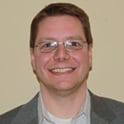 Steve Tutewohl, FSA, MAAA - Strategic Accounts Officer, Valence Health
Steve Tutewohl, FSA, MAAA - Strategic Accounts Officer, Valence Health
Meet Steve Tutewohl. In his 18-year tenure with Valence Health, Steve has seen the company grow exponentially in its size and capabilities. As a strategic accounts officer, he leads the company's analytics and actuarial services, which design and execute risk-based contracting strategies by bridging healthcare IT and business.
Steve's clients are providers who have historically relied on financial data for care management. Steve and his team developed a model that combines traditional, financial data with clinical data, such as EMRs, pharmacy use and lab results to give providers unprecedented insights into population health. This model gives providers the same competitive edge payers had for years and allows them to stay profitable by identifying gaps in care, detecting early warning signs for hospital admission and measuring care quality.
Steve's advice to actuaries seeking a career in data science: "There is no better place to be. Health care is a $3-to-4 trillion industry that is in an environment of constant change. It's recession proof. What makes it appealing is the amount of data that is out there. We're still scratching the surface of how we use that data."
 Andrew M. Webster, MS, ASA, MAAA - Actuary and Founder, Validate Health
Andrew M. Webster, MS, ASA, MAAA - Actuary and Founder, Validate Health
Meet Andrew Webster. In 2014, Andrew founded Validate Health, which gives health providers access to actuarial modeling and predictive analytics that help them optimize their profitability in the face of shrinking margins. Tapping into newly-available clinical data sources, automated workflow technology and a professional actuarial training, Andrew and his team help providers establish agile intervention protocols that save clients from preventable financial risks.
In one such example, Andrew's team evaluated medical and pharmacy data points for patient trends. They found that by rerouting certain patients requiring a very specific injectable drug from a hospital outpatient setting to a clinic, their client could recover nearly $1M annually while the patient received the right level of care. It led to a targeted program and a way to monitor its progress.
Andrew's advice to employers searching for predictive analysts? "People who analyze data are called data scientists. They don't have professional quality standards requiring signature. An actuary does."
Meet Michael Xiao. As a film major in college with a dream to shoot movies, it’s safe to say Michael had a nontraditional start to his career in predictive analytics.
After graduating college, Michael went to China to film his first movie. Before he left, his mom suggested he look into the actuarial field as an alternative to a film career in case it didn’t work out. As someone who was always interested in math, computers and computer science, Michael realized the actuarial profession was a good fit for him, and it didn’t take him long to launch his career at Cigna. Today, Michael is the Divisional Vice President of Enterprise Analytics at Blue Cross and Blue Shield across five states. As an actuary working in predictive analytics, Michael is constantly finding ways to solve problems and enjoys that every day brings new challenges.
Michael’s advice to actuaries who want to take a nontraditional path in their careers:
“It’s critical to understand how to sell yourself as an actuary. When you’re discussing skills and careers with someone highly technical, like a hiring manager on a data team, you need to be able to explain what you bring to the table that they don’t already have on the team — business skills and a deep understanding of the data. That combination is the foundation of success in predictive analytics.”

